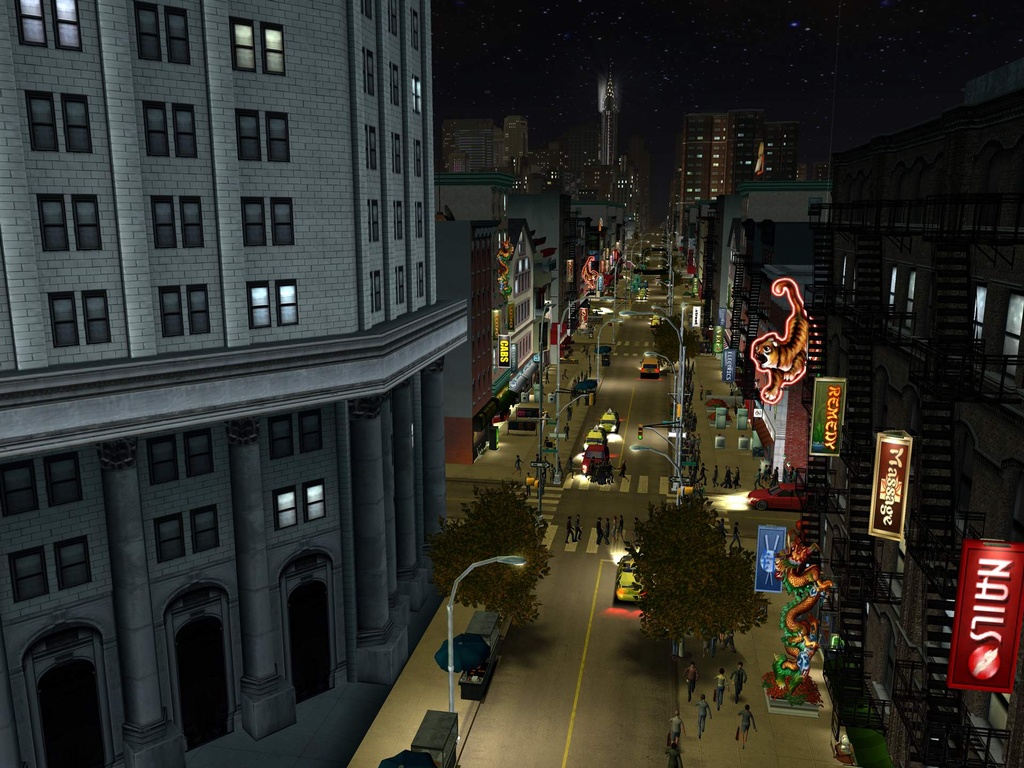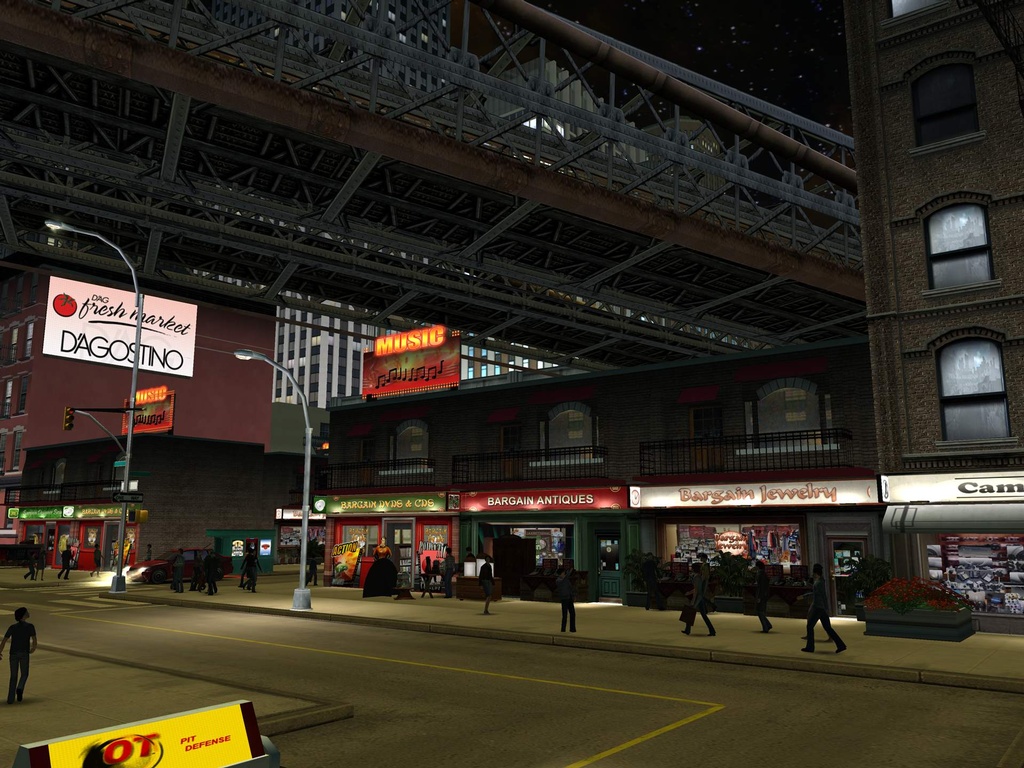City and business simulations are nothing new for developer Deep Red, whose previous efforts include games like Vegas Tycoon, Spring Break, and the well-received Monopoly Tycoon. Their newest effort, Tycoon City New York, is another decent entry to the genre whose strong suit is its excellent and detailed graphics. The interface elements in the game are also fairly well conceived, but the overall package suffers from gameplay that doesn't offer much challenge, eliminating any sense of tension.

The game offers two gameplay modes: sandbox, which lets you build with complete freedom on a clean slate, and the "build New York" mode, which is a more structured campaign. The latter will have you working to re-create Manhattan island borough by borough, starting with the bohemian hangout of Greenwich Village on up through other famous areas like Soho/Tribeca, the East Village, and midtown. The first couple of levels of the game are basically an extended tutorial that teaches you the basics, from how to move the camera to more esoteric details, including all the interface tools you have available to you. This tutorial is presented at a sensible pace, not overwhelming you with too many things at first, and interjecting with further details as you need to learn them.
The premise is that you're a business owner looking to develop the city. You can build everything from housing to restaurants, grocery stores, clothing shops, nightclubs, bars, and even cultural centers like museums. The point of the game is to grow the city by satisfying the needs of its residents, which are represented via bar graphs any time you click on an apartment building. This method of distribution means that the game's focus is very area-specific. In fact, any time you place a business, you'll see a sphere of influence pop up around your shop that highlights the demand for that type of business among the nearby residential buildings. This makes smart placement of your shops fairly intuitive. The game also gives you bonuses for placing buildings of similar purpose near one another; in this way, you can create subdistricts within each area, such as a shopping area full of secondhand clothing shops and cafes, or a nightlife area with several clubs and bars in close proximity. The more successful you are at smart placement of your business, the more foot and vehicle traffic you'll see.
The amount of detail you'll see in the city as your neighborhoods grow is the best aspect of Tycoon City New York. Once you've got a neighborhood in full swing, it's pretty fun to stop and watch the people walk down the street and into your stores, or sit down at your cafes and have a meal on an outdoor patio table. The buildings all look great, with details ranging from stone steps to row houses, neon-lit store facades, and iron fire escapes from multistory apartments. As you zoom into the action, you'll hear the din of conversation and vehicle traffic, and even some random chatter from the passersby about the quality of living in the neighborhood or their opinion about a store. There's also a day/night cycle that gives you a different look for your city as transitions between day and night are made.
The shops you control are customized via an upgrade system that lets you add decorations and additional features to shops that can increase capacity, improve service or value, and beautify a business. The exact effect an improvement may have on your business is represented before you place the item down via another bar graph. In this way you can more wisely decide if adding a fruit display in front of your grocery store would do you more good than adding a sign on top that could expand the sphere of influence of the business (thus allowing it to serve a larger radius of residences). While it costs money to place a shop, improvements are governed by a point system, so this encourages you to constantly tweak your businesses to maximize the profit they bring in. Would that coffee shop do better with an extra waiter instead of more tables on the sidewalk? You can just swap those improvements out without fear of wasting money.
The game does stop short of asking you to manage prices on your various shops. The profit you make at each business is instead a product of how satisfied the surrounding populace is with that shop, and thus, how much traffic it can attract. This takes some options away from you as far as competing with the various computer-controlled entrepreneurs who will create businesses around the city to compete with you. You'll instead have to compete based on location and the type of improvements you make to your store, or simply buy out the competition if you're really in a pickle.

The ultimate problem with Tycoon City New York, though, is that it's just not that difficult. As long as you're reasonably intelligent about the types of businesses you create and where you place them, making money is never a real problem. You'll have challenges thrown at you from time to time, which you can beat to earn special points that you use to create famous landmarks. But these challenges are never all that difficult, and it's really only a matter of time before you beat them. While the massive, working city you help create is fun to look at, the satisfaction of creating it is ultimately lessened by the ease with which you'll get your achievements.
The game's ease is not necessarily a bad thing if you just want to have fun watching a living, breathing virtual city. For newcomers to the genre, the game's not a bad choice in spite of its many layers of menus and reams of available information. The detailed tutorial and tips system, as well as the game's attractive presentation, make it a decent choice for those who want to delve into the simulation genre. For veteran simulation players, though, Tycoon City New York probably lacks the depth and difficulty to be satisfying for very long.